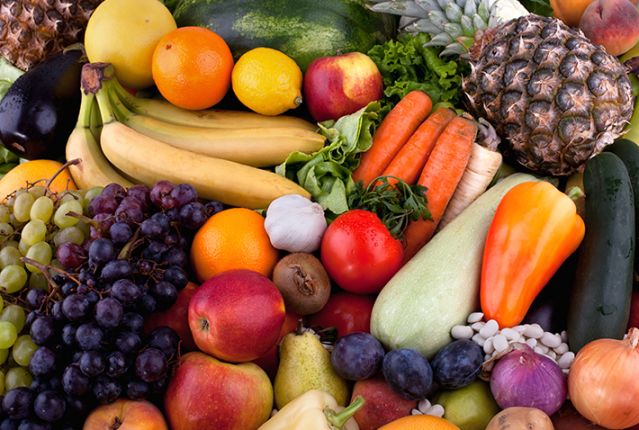

Feeling down after receiving bad news is quite natural. The problem, however, is the time it takes for those who feel sad or depressed to work through their issues and snap out of their despondency. Do depressive symptoms last for days? weeks? months? years? The duration of depression makes all the difference in the diagnosis of major depressive disorder.
The National Institute of Mental Health reports that 25% of adults and 10% of children experience mental illness each year. With the holidays around the corner, some individuals may feel less than festive. And the sweet, delectable treats that are commonly associated with many end-of-year holidays lack significant nutrients that help to combat depression and improve mood.
What is Depression?
Depression is a mental illness that is characterized by negative thoughts and behaviors. Mental illness is a worldwide epidemic. According to the World Health Organization (WHO) data shows that mental disorders account for 4 out of 10 leading causes of disability worldwide. In 2020, major depression will lead the pack of mental illness as the cause of disability among women and children across the globe. Mental illness impairs one’s ability to carry out daily activities and to interact with others. Depression can become so stifling that it disrupts a person's quality of life and may result in substance abuse and poor work performance. In the U.S., suicide is the 10th leading cause of death taking about 40,000 lives every year. Studies show that feelings of hopelessness and mental illness are associated with suicide. So it’s crucial to seek help for someone you know who has expressed a sense of hopelessness.
Treatment options are effective and often include a combination of pharmacological and psychosocial treatments. And 70 to 90% of mental health patients experience significant improvements in their symptoms. Nutrition can improve depression too. In my new book, The Gene Therapy Plan: Taking Control of Your Genetic Destiny with Diet and Lifestyle, I explain the evolutionary science of epigenetics and how diet and other lifestyle changes can improve your health.
Gutting Out Depression
In epigenetics, DNA doesn’t simply compose the helical structure of the human genome. Rather epigenes, as its name suggest, lies above the genome — adding another layer to the spiraled genetic structure. Environmental factors such as stress, cigarette smoking, and food alter epigenes to change the structure of genes. These epigenetic modifications activate and deactivate genes in ways that help or harm your health.
Food is one essential way in which you can control your epigenetic profile. Because what you eat affects your mood, you should aim for foods that enhance your gut health. In fact, microorganisms produce numerous neurochemicals. These neurochemicals made by gut bacteria play a role in mood and other neurologic functions. So balancing gut bacteria through the consumption of probiotics such as Lactobaccilli and Bifidobacteria help to elevate mood.1,2
Another toxicant linked to depression is aspartame, a chemical used in artificial sweeteners. Aspartame is broken down into smaller molecules that decrease serotonin, which has been dubbed the “happiness” hormone and is an important neurochemical messenger that regulates appetite and mood.
Natural Depressants and Antidepressants — Nutrients to Avoid and Consume
Nutritional epigenetics is a two-way street: Some foods promote health and others bolster disease. To avoid the latter, you should steer away from foods that make you feel depressed:
Alcohol: Although the occasional drink is fine, people should limit their alcoholic intake. Heavy alcohol consumption is associated with anxiety and panic attacks; excessive drinking also depletes serotonin, which makes people prone to anxiety and depression.
Caffeine: Caffeinated beverages lower serotonin and increase the risk for anxiety, depression, and poor sleep. Reduce your intake for coffee, tea, and hot cocoa. Also, avoid the urge to sweeten your caffeinated beverages.
High-Calorie, Low Nutrient Foods: When you eat processed, refined sugars, you enjoy a momentary high-energy jolt. Eating sweets raises blood sugar level, increases fat storage, and promotes a crash-and-burn feeling. Maintaining a steady blood sugar level is important to achieve even-keeled energy levels.
To eat your way to being healthier, consume epigenetic foods that promote wellness, improve sleep, and elevate your mood. For example, serotonin is a feel-good hormone that uplifts your mood and helps you to sleep better. Eat foods such as chickpeas, which are rich in tryptophan, a precursor of serotonin. Balance your mood and prevent depression by also eating the following foods:
B12 and folate prevent mood disorders and dementias.
- Sources: beetroot, lentils, almonds, spinach, liver (folate); liver, chicken, fish (B12)
Vitamin D deficiency is associated with different mood disorders.
- Sources: sun exposure; breakfast cereals, breads, juices, milk; high-quality supplements
Selenium decreases depression.
- Sources: cod, Brazil nuts, walnuts, poultry
Omega-3 fatty acids are crucial for cognitive and behavioral function. Low levels of omega-3 fats lead to many health problems including mood swings and depression.
- Sources: cod, haddock, salmon, halibut, nut oils, and algae; high-quality supplements
Dark chocolate enhances mood by increasing endorphins in the brain that promote a sense of well-being.
There are many healthful foods that act as antidepressants. While these good-mood foods are essential for your diet, there’s still more that you can do. Get in the habit of participating regularly in physical activity. Exercise increases your metabolism, enhances mood, and alleviates tension.
References:
1. Burnet PW, Cowen PJ. Psychobiotics highlight the pathways to happiness. Biological Psychiatry. 2013;74(10):708-709.
2. Logan AC, Katzman M. Major depressive disorder: probiotics may be an adjuvant therapy. Medical Hypotheses.64(3):533-538.



